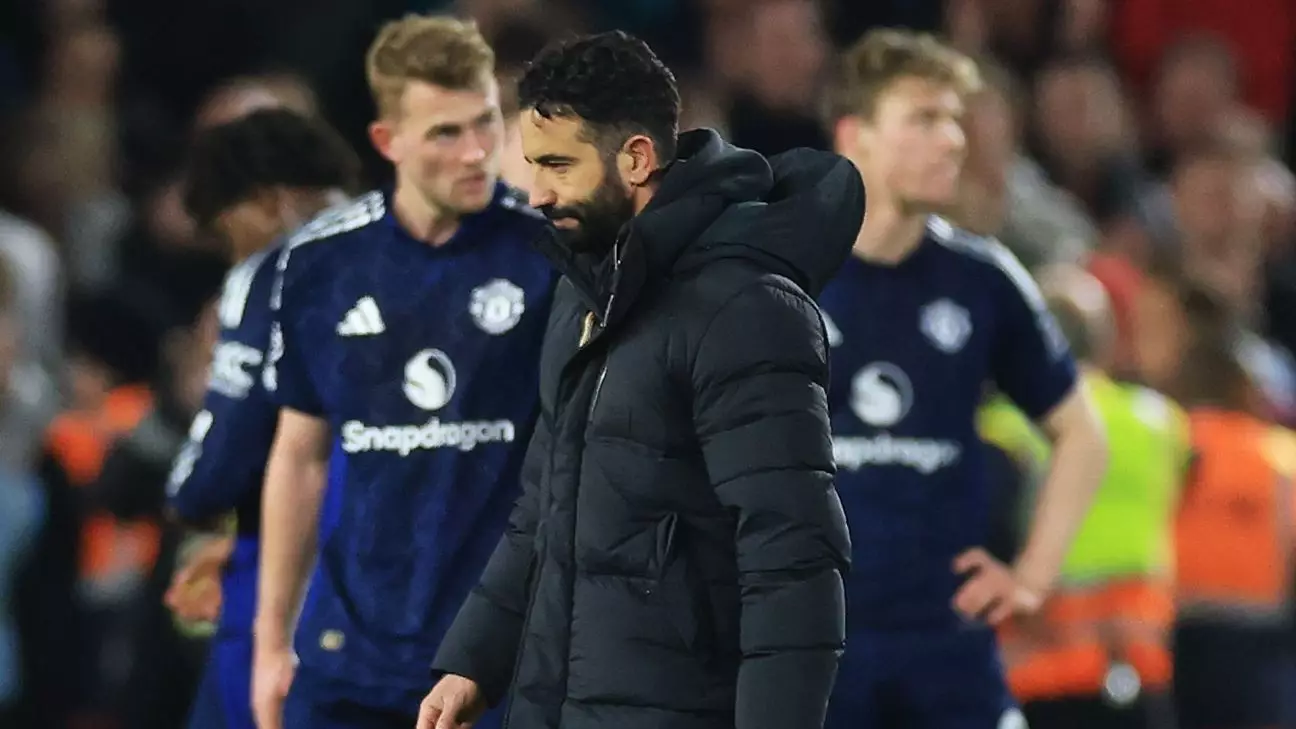Ruben Amorim’s managerial role at Manchester United has swiftly transformed from a promising opportunity to a formidable challenge. After yet another disappointing defeat against Nottingham Forest—marking the team’s 13th loss of the Premier League season—Amorim has made it clear that the luxury of time is a scarcity in a club of United’s prestigious stature. The weight of expectation is a heavy burden, and Amorim’s candid acknowledgment of this reality underlines the relentless pressure that characterizes life in the Old Trafford hot seat.
Despite the tactical nuances he attempted to instill, Amorim’s squad faltered significantly, leaving them perilously close to equaling their dismal record of 14 defeats in a single season. This situation leads one to ponder whether Amorim’s vision can penetrate the fear pervading the team—a fear that has been seemingly ingrained through a series of lackluster performances. With United residing unsettlingly mid-table, the ethos of the club clashes sharply with the current reality, showcasing an urgent need for transformation that feels ever-distant.
Offensive Struggles and Glaring Inefficiencies
One of the more startling observations from the Nottingham Forest match was how United’s offensive play deteriorated, particularly in the final third. Alejandro Garnacho, heralded for his youthful vigor, epitomized this inefficacy, managing six out of the team’s 24 attempts but failing to truly test the opposing goalkeeper. His struggles reflect a broader issue: the team appears devoid of clinical execution despite creating opportunities. Amorim’s defense of Garnacho underscores a lingering hope for development amid frustration, yet it poses a larger question—how long can the club rely on youthful exuberance without the necessary results?
In football, especially in a club as storied as Manchester United, accountability must transcend age. The burden partially lies with Amarim in terms of fostering a more dynamic, cohesive offensive strategy. Rather than relying solely on individual brilliance, which appears sporadic at best, it is crucial for Amorim to cultivate a synergistic approach to attacking play. His emphasis on pressing and quick transitions seems promising, but without firm results, the players’ confidence could further erode, leading to an upward struggle.
Defensive Stability: An Elusive Goal
Amorim’s admission that conceding early was detrimental against Nottingham Forest is both a recognition and an indictment of broader defensive malaise. Teams often flourish under pressure when they establish a structured defensive framework; instead, United appears to invite crises. The lurking danger from counter-attacks has been a consistent feature of their performances, and it is a pivotal area that demands immediate rectification if Amorim hopes to salvage a semblance of a successful season.
The complex interplay between defensive responsibilities and attacking inclinations poses a daunting challenge for Amorim, but it’s one that carries no room for half-measures. The players must cultivate a collective tenacity to withstand early assaults, allowing them to engage fully in the tactical plans Amorim is committed to deploying. The lack of fierce resolve within the squad could lead to further deterioration, escalating the urgency for genuine change that does not simply tinker at the edges.
A Long Road Ahead
In essence, Amorim’s tenure is unfurling as a compelling narrative of potential and peril. His unique challenges reflect a crossroad of ambition and expectation that has characterized Manchester United over recent years. Time may be lacking, but the collective desire for revitalization remains palpable. Amorim must navigate these turbulent waters carefully, embodying the spirit of resilience that this storied club has long been known for. The journey is yours to forge, Amalir—step boldly into the future.


Napsat komentář